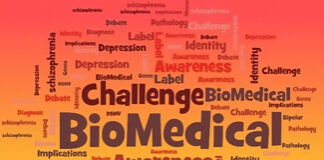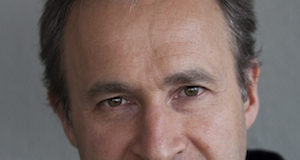Tag: psychiatric diagnosis
Your Psychiatrist Might be Wrong
From Pakistan Today: Psychiatry may lack scientific objectivity in comparison with other fields of medicine.
"The mind sciences – psychology or psychiatry – have always been...
Trump and the Diagnosis Free-for-All
It would seem that who is 'mentally ill' is a movable target (much more so than, say, the cancer or diabetes to which it is often compared), sometimes based on convenience and strategy. If you hold enough power, you can decide who's sick, provided they don't have enough leverage to outdo you at your own game.
Time to ‘Drop the Disorder’
It was February 2016, the UK-EU referendum debate was beginning to warm up and my tolerance for absorbing toxic tweets and frustrating Facebook posts was dwindling fast. What then pushed me over the edge was yet another celebrity-inspired media frenzy about a psychiatric “illness.”
Curing Schizophrenia via Intensive Psychotherapy
I believe that an Intensive Psychotherapy can lead to healing and, often, a cure of psychotic states. By cure I mean the cessation of delusions and hallucinations, and a gradual titration off of antipsychotic medication, with the cure lasting—even without continuing psychotherapy.
Sociologist Explores the DSM-5’s Failed Attempt at Validity
In a new article for the journal Social Science & Medicine, sociologist Owen Whooley investigates how the DSM-5 creators failed in their attempt to...
Critics Push WHO to Remove Transgender from List of Mental Illnesses
The World Health Organization (WHO) currently lists being transgender as a medical condition and mental illness. Critics argue that the world’s leading health organization...
A Moment Passed Too Often
What if, in that moment, nothing happened? What if I was given a second to collect myself enough to engage in the conversation surrounding my future? No one asked me what I would like to do. I was never given the chance to regain my equilibrium before I was drugged and bagged for the next decade.
Jim van Os: New Vision for Psychiatry
Jim van Os, professor of Psychiatric Epidemiology at Maastricht University and member of the Royal Dutch Academy of Science with more than 700 publications, is one of the top one percent highly cited scientists in the world.
Myths are Used to Justify Depriving People Diagnosed as Mentally Ill...
Despite the fact that no one in history, not even the omnipotent American Psychiatric Association -- which produces and profits mightily from the "Bible" of mental disorders -- has come up with a halfway good definition of "mental illness," and despite the fact that the process of creating and applying the labels of mental illness is unscientific, any of those labels can be used to deprive the person so labeled of their human rights. This is terrifying. It ought to terrify those who are so labeled and those who are not, because deprivation of human rights on totally arbitrary grounds is inhumane and immoral.
“Mind, Myth and Madness”
Are psychiatric diagnoses real, or are they the cause of an apparent global mental health crisis? Researchers Richard Bentall and Simon Baron-Cohen, and psychiatrist Dinesh Bhugra...
Culturally Numb
Experiencing emotional pain is a necessary part of life. Emotional pain often contains valuable lessons to help us on our journeys. We need to make sure we are not numbing our hearts to those that are hurting. We need to de-stigmatize the struggles, joys and pains that come with being human. We need to not just mindlessly pursue happiness - though we might think of that as an inalienable right - and avoid pain. We need to do the only thing that brings true joy: embrace all of life and each other, as we experience together all that makes us human.
The Recovery After an Initial Schizophrenia Episode (RAISE) Study: Notes from...
I was a psychiatrist who participated in the Recovery After an Initial Schizophrenia Episode Early Treatment Program (RAISE ETP). Although I welcomed the positive headlines that heralded the study's results, the reports left me with mixed feelings. What happened to render the notion that talking to people about their experiences and helping them find jobs or go back to school is something novel?
Majority of Youth Prescribed Antipsychotics Have No Psychiatric Diagnosis
The majority of children, adolescents and young adults prescribed antipsychotic medications have not been diagnosed with a mental disorder, according to a recent study published in JAMA Psychiatry.
Is My Therapist Good or Not?
I frequently get asked by people on the internet whether or not I think their therapist is good. For a variety of reasons, I usually do not feel comfortable answering them directly. However, I do feel comfortable writing about the subject here, as a sort of amalgamated response. As such, here are some questions I might ask such people, and here is how I might respond to their answers.
Medical Nemesis Revisited: Physician-Caused Anger, Despair & Death
Regaining power over our own health was the goal of Ivan Illich’s 1976 book Medical Nemesis, which detailed an epidemic of physician-caused death and illness. This epidemic continues, and so does an epidemic of physician-caused anger, despair and crazy-appearing behaviors. In 2013, the Journal of Patient Safety reported that the “true number of premature deaths associated with preventable harm to patients is estimated at more than 400,000 per year,” making it the third leading cause of death in the United States It is especially drug use errors, communication failures and diagnostic errors that result in another medical nemesis: They can make us appear—and sometimes feel—like we’re “crazy.”
Protesting a Psychiatric Atrocity
On May 16, 2015, protests against electroconvulsive therapy or ECT will take place around the world. To support this educational campaign, I am releasing my newest Simple Truths about Psychiatry video which is titled “Shock Treatment is Trauma.” Ted Chabasinski, an attorney, is an organizer of the protest. Ted recently talked about his personal experiences and the upcoming protests on my radio show, “The Dr. Peter Breggin Hour.” We agreed that money and power is not the only motivation of shock doctors. Many are taking out their violent impulses on their helpless victims.
Psychiatry and the Problem of the Medical Model – Part 1
The mental health industry has a lot to answer. The psychologization of everyday life has eroded the range of human experience seen as normal, disempowered people to manage their own life challenges, professionalized helping relationships and undermined the already decaying support structures through which people found meaning and connection, stigmatized people through psychiatric labeling, led to iatrogenic misery from harmful treatments and traumatized already vulnerable individuals through excessively coercive practices.
When Homosexuality Came Out (of the DSM)
With a diagnosis of schizophrenia, if internalized, comes the erosion of personhood, lowered self-esteem, shattered dreams, and a sense of disenchantment. The psychiatrist Richard Warner has even suggested that those who reject the diagnosis of severe mental illness may have better outcomes as they retain the right to construct their own narrative of personhood and define what really matters for them. Despite public education campaigns (or perhaps because of them), the stigma of mental illness is as enduring as it was 50 years ago.
Science and Pseudoscience in Psychiatric Training: What Psychiatrists Don’t Learn and...
Evidence based care is supposed to drive up standards, ensure uniformity, establish best practice, guide clinicians and protect patients. This should be celebrated. Instead, evidence-based mental health is openly disparaged, and when psychiatrists don’t get the results they want, they ignore them, suppress them, or denounce them. These attitudes have repercussions on the training of psychiatrists.
From Blaming the Patient to Blaming the Brain
The idea of schizophrenogenic or refrigerators mothers was an embarrassing era for psychiatry, and so psychiatrists were only too happy to explore the brain and the genome to unlock the secrets of mental illness. Today, the rhetoric has shifted away from intrapsychical conflicts and traumatic ruptures, and instead aberrant neurochemistry or delinquent genes are held as the source of mental illness. Regardless, the message is clear: mental illness is beyond our control and requires psychiatric intervention. The moral authority the mental health industry claims over our mental life rests on this claim.
Symptom or Experience: Does Language Matter?
Of all the beliefs that I have had about my experiences, the belief that I was ‘schizophrenic’ was the most damaging. In adopting the story that others told about me, and abandoning my own sense-making process, I held on to a belief that both hid my traumatic life experiences and rendered them irrelevant. Does it matter if we sometimes slip into the language of illness when we all agree that these experiences are meaningful, personal and have value? Yes. It does.
DxSummit Officially Launches
As co-chair of the Diagnostic Summit Committee of the Society for Humanistic Psychology, I am pleased to announce that today we officially launch the Global Summit on Diagnostic Alternatives (DxSummit.org), an online platform for rethinking mental health. Our goal is to provide a place for a collegial and rigorous discussion of alternative ways to conceptualize and practice diagnosis. Today's launch is marked by the appearance of our first eight posts. These posts come from a variety of prominent people in the field, each offering a unique perspective on the current state of diagnosis and where we might take things as we move forward.
Winners of the American Dream
Since I left the psychiatric prescribing trenches and came south for the winter, I’ve been staying in a beach town within driving distance of a technology metropolis. I take breaks from my writing and walk to the beach. There, I meet and talk with the winners of the American dream. They are intelligent, highly educated and financially successful. They take their beach vacations here.
We Are All Adam Lanza’s Mother (& other things we’re...
I do not understand how we can continue to avoid the conversation about psychiatric medications and their role in the violence that is affecting far too many of our children, whether Seung-Hui Cho, Eric Harris, Kip Kinkel, or Jeff Weise (all of whom were either taking or withdrawing from psychotropic medications) or the scores of children and adults they have killed and harmed. It is not clear what role medications played in the Newtown tragedy, though news reports are now suggesting there is one.
Do Diagnoses Injure People?
Yes, a psychiatric diagnosis can be a dangerous thing to have. But, these days, so is having any medical diagnosis. The names and words of the diagnoses themselves are not so much to blame for the harm. Rather, the harm comes through the ways the diagnoses are created and how they are used.















